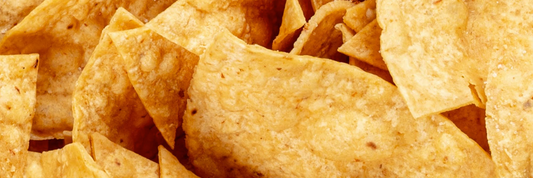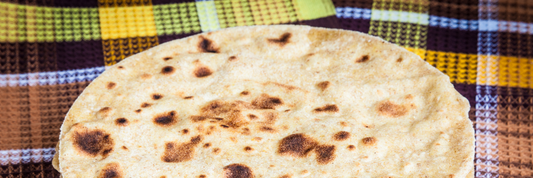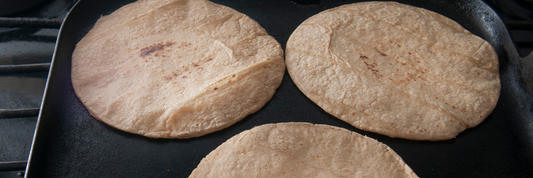Peanut butter is a pantry staple in many households - loved for its creamy texture, nutty flavor, and versatility. But with its high calorie content and mixed messages from the media, many wonder: Is peanut butter healthy?
This comprehensive guide explores its nutritional profile, health benefits, potential risks, and how to enjoy it wisely.
Is Peanut Butter Healthy?
Overview of Peanut Butter’s Health Profile
Peanut butter is a nutrient-dense food made primarily from ground roasted peanuts. It delivers a balanced combination of plant-based protein, healthy fats, and essential vitamins and minerals. When consumed in moderation, it can be a valuable part of a healthy diet.
Its health benefits depend largely on the quality of ingredients and portion size. Natural varieties, made without added sugar or hydrogenated oils, offer the most nutritional value.
Factors That Influence Healthiness
- Ingredient quality: Brands with minimal ingredients (just peanuts, maybe a pinch of salt) are the healthiest. Added sugars, excessive salt, and hydrogenated oils reduce its health benefits.
- Portion control: Peanut butter is calorie-dense. Overconsumption can lead to weight gain, even with healthy varieties.
- Allergies and sensitivities: Peanut allergies can be severe and require complete avoidance.

Peanut Butter Nutrition
Peanut butter is one of the most nutrient-dense spreads available, offering a balance of macronutrients and micronutrients that make it both satisfying and energizing. Understanding peanut butter nutrition can help you incorporate it into your diet in a way that supports your health goals.
Core Macronutrient Composition
A standard 2-tablespoon (32g) serving of peanut butter contains roughly:
- Calories: 190–200 kcal
- Protein: 7–8g of plant-based protein, important for muscle repair and satiety
- Carbohydrates: Around 8g, with 2–3g of dietary fiber for digestive health
- Total Fat: About 16g, with the majority being heart-healthy unsaturated fats
- Monounsaturated fats: ~8g
- Polyunsaturated fats: ~4g
- Saturated fats: ~3g
This macronutrient balance provides long-lasting energy and keeps you feeling full for longer.
Healthy Fats in Peanut Butter
The fats in peanut butter are predominantly monounsaturated and polyunsaturated, which are known to:
- Improve cholesterol balance by reducing LDL and maintaining HDL levels
- Support brain health and reduce inflammation
- Provide a slow-release energy source for active individuals
Vitamins, Minerals, and Antioxidants
Peanut butter is also a source of key micronutrients, including:
- Vitamin E: A powerful antioxidant that protects cells from oxidative stress
- Magnesium: Supports muscle and nerve function, and helps regulate blood sugar
- Potassium: Aids in maintaining healthy blood pressure
- B Vitamins (Niacin, Folate, B6): Support metabolism, red blood cell formation, and overall energy production
- Phosphorus, Zinc, Copper, and Manganese: Contribute to bone health, immune function, and enzyme activity
- Antioxidants: Compounds like resveratrol may offer additional heart-protective effects
Natural vs Processed Peanut Butter Nutrition
- Natural peanut butter: Contains only peanuts (and sometimes salt), providing the purest nutritional profile.
- Processed varieties: May include added sugars, hydrogenated oils, and extra sodium, which can diminish health benefits and alter the calorie-to-nutrient ratio.
Peanut Butter as Part of a Balanced Diet
When consumed in moderation, peanut butter can be:
- A valuable protein source for vegetarian and plant-based diets
- A convenient snack for athletes needing quick, nutrient-dense calories
- A satisfying addition to meals that helps control hunger and maintain steady energy levels
Peanut Butter Calories
Peanut butter is calorie-dense, meaning it packs a significant amount of energy into a small serving size. While this is one reason it’s so satisfying, it also means portion control is essential - especially for those managing weight or monitoring calorie intake.
Calories in Peanut Butter (Per Standard Serving)
A typical 2-tablespoon (32g) serving of peanut butter contains approximately:
- Calories: 190–200 kcal
- Protein: 7–8g
- Carbohydrates: ~8g (including 2–3g of fiber)
- Fat: ~16g
Most of these calories come from healthy fats, followed by protein and a small portion from carbohydrates. This nutrient balance is one reason peanut butter provides long-lasting satiety.

Calories in Peanut Butter by Type
Different varieties of peanut butter have slightly different calorie counts:
- Natural creamy peanut butter: ~190 calories per 2 tablespoons
- Natural crunchy peanut butter: ~195–200 calories per 2 tablespoons
- Reduced-fat peanut butter: ~180 calories, but often with more sugar and fillers to replace the fat
- Flavored or sweetened peanut butter spreads: Can exceed 200–220 calories, with added sugars contributing to the increase
Why Peanut Butter is Calorie-Dense
- High fat content: Even though most fats in peanut butter are healthy (monounsaturated and polyunsaturated), fats provide 9 calories per gram - more than double the calories of protein or carbs.
- Compact serving size: Two tablespoons may not seem like much, but it delivers as many calories as some full meals when combined with other foods.
Managing Peanut Butter Calories in Your Diet
- Stick to 1–2 tablespoons per serving to balance nutrient benefits with calorie intake.
- Pair peanut butter with fiber-rich foods like apples, celery, or whole-grain bread to stay fuller for longer without overeating.
- Choose natural or unsweetened varieties to avoid hidden calories from added sugars and oils.
When Higher Calories Can Be a Good Thing
For athletes, active individuals, or those needing to gain weight healthfully, peanut butter’s calorie density can be a convenient way to increase energy intake without resorting to processed snacks.
Protein in Peanut Butter
Protein is one of the key reasons peanut butter is considered a satisfying and energy-sustaining food. While it may not match the protein content of meat or dairy per serving, peanut butter offers a plant-based source of this essential macronutrient that can fit into many dietary patterns.
Protein in peanut butter 1 tbsp
- 1 tablespoon (16g): Approximately 3.5–4 grams of protein
- 2 tablespoons (32g): Approximately 7–8 grams of protein
The protein in peanut butter contributes to muscle repair, supports metabolic health, and helps keep you feeling full longer. This makes it an excellent addition to breakfasts, snacks, and post-workout meals.
Amino Acid Profile
Peanut butter contains a range of amino acids but is not a complete protein because it is relatively low in the amino acid methionine. However, when combined with other plant-based protein sources (such as whole grains, legumes, or seeds), it can contribute to a complete amino acid profile.
Maximizing the Benefits of Peanut Butter Protein
- Pair with whole grains: Peanut butter on whole-grain bread creates a more balanced amino acid mix.
- Add to smoothies: Combine peanut butter with milk or soy-based protein for a higher-protein beverage.
- Mix with seeds or oats: Chia seeds, flaxseeds, or oatmeal add extra protein and fiber.
Peanut Butter Protein vs Other Nut Butters
- Peanut butter: 7–8g protein per 2 tablespoons
- Almond butter: ~6g protein per 2 tablespoons
- Cashew butter: ~5g protein per 2 tablespoons
Peanut butter generally offers more protein than most other nut butters, making it a preferred choice for those prioritizing protein intake from plant-based foods.
Who Benefits Most from Peanut Butter Protein
- Athletes and active individuals: Supports muscle recovery and provides sustained energy.
- Vegetarians and vegans: Offers a versatile, non-animal protein source.
- Busy professionals and families: Easy to incorporate into quick, nutritious snacks.

Health Benefits of Peanut Butter
Peanut butter is more than just a flavorful spread - it’s a nutrient-packed food that can deliver a variety of health benefits when consumed as part of a balanced diet. From supporting heart health to helping with weight management, its advantages are backed by both science and everyday experience.
Supports Heart Health
Peanut butter contains monounsaturated and polyunsaturated fats, which are known to help:
- Lower “bad” LDL cholesterol levels
- Maintain or raise “good” HDL cholesterol
- Reduce inflammation linked to cardiovascular disease
Regular consumption of nuts and nut butters, as part of a healthy eating plan, is associated with a lower risk of heart disease.
Promotes Blood Sugar Stability
The combination of protein, healthy fats, and fiber in peanut butter slows down carbohydrate absorption, helping to:
- Prevent rapid spikes in blood sugar
- Support better insulin sensitivity
This makes peanut butter a smart choice for people with type 2 diabetes or those aiming to manage their blood sugar.
Aids Weight Management and Satiety
Despite being calorie-dense, peanut butter can help control hunger:
- Protein and fat promote feelings of fullness
- Fiber supports digestion and helps you stay satisfied longer
When eaten in reasonable portions, peanut butter can fit into both weight-loss and maintenance diets.
Provides Essential Nutrients
Peanut butter is a rich source of:
- Vitamin E: An antioxidant for skin and immune health
- Magnesium: Important for muscle and nerve function
- Potassium: Helps regulate blood pressure
- B vitamins: Support metabolism and energy production
These nutrients contribute to overall wellness and can help fill dietary gaps.
Convenient, Versatile, and Plant-Based
- Fits vegetarian and plant-based diets as a non-animal protein source
- Easy to incorporate into meals and snacks - from smoothies to whole-grain toast
- Portable and shelf-stable, making it a practical option for busy lifestyles
Potential Health Risks and Considerations
Peanut Allergies
Peanut allergies are among the most common and can be life-threatening. Anyone with an allergy should avoid peanut products entirely.
Contamination Concerns
Peanuts can contain aflatoxins (toxins from mold) and may rarely be contaminated with salmonella. Reputable brands and regulated markets have strict safety measures to minimize these risks.
Overconsumption Risks
Despite its benefits, too much peanut butter can lead to excessive calorie and saturated fat intake, contributing to weight gain or heart health issues.
How to Choose the Healthiest Peanut Butter
Opt for Natural or Single-Ingredient Options
Choose peanut butter with only peanuts - and maybe a touch of salt - for maximum nutritional benefit.
Avoid Common Additives
Steer clear of added sugars, hydrogenated oils, and artificial flavors.
Natural vs Reduced-Fat Peanut Butter
Reduced-fat versions may seem healthier but often contain more sugar and fillers. Natural, full-fat peanut butter provides healthier fats and better satiety.
Recommended Serving Size and Usage Tips
Daily Intake Guidelines
1–2 tablespoons per day is ideal for most adults. This provides nutritional benefits without excessive calories.
Best Food Pairings
- With apple slices for a balanced snack
- Spread on whole-grain toast for a fiber-protein combo
- Added to smoothies for extra creaminess and nutrients
Frequently Asked Questions (FAQ)
Is peanut butter healthy for weight loss?
Yes, in moderation. Its protein and fiber can help control hunger.
How many calories are in peanut butter?
About 190–200 calories per 2-tablespoon serving.
How much protein is in peanut butter per tablespoon?
Around 3.5–4g.
Does peanut butter spike blood sugar?
Not significantly when eaten alone or with low-GI foods.
Which type of peanut butter is the healthiest?
Natural, unsweetened peanut butter made from 100% peanuts.
Final Verdict
So, is peanut butter healthy? Yes - when you choose high-quality, natural peanut butter and enjoy it in reasonable portions. It offers a unique balance of protein, healthy fats, vitamins, and minerals that can support heart health, energy levels, and satiety. Like any calorie-dense food, the key is moderation.







